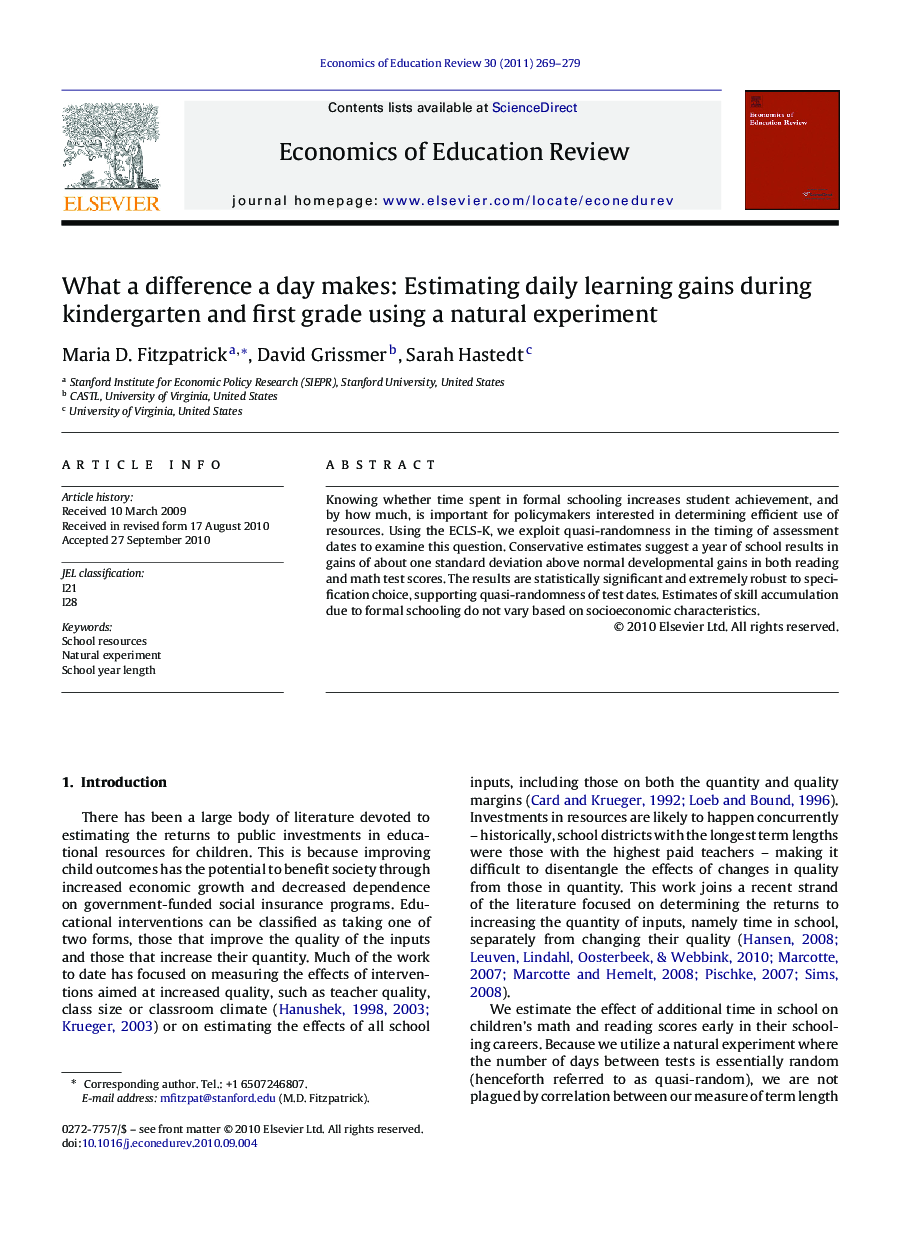| Article ID | Journal | Published Year | Pages | File Type |
|---|---|---|---|---|
| 354778 | Economics of Education Review | 2011 | 11 Pages |
Abstract
Knowing whether time spent in formal schooling increases student achievement, and by how much, is important for policymakers interested in determining efficient use of resources. Using the ECLS-K, we exploit quasi-randomness in the timing of assessment dates to examine this question. Conservative estimates suggest a year of school results in gains of about one standard deviation above normal developmental gains in both reading and math test scores. The results are statistically significant and extremely robust to specification choice, supporting quasi-randomness of test dates. Estimates of skill accumulation due to formal schooling do not vary based on socioeconomic characteristics.
Keywords
Related Topics
Social Sciences and Humanities
Economics, Econometrics and Finance
Economics and Econometrics
Authors
Maria D. Fitzpatrick, David Grissmer, Sarah Hastedt,
